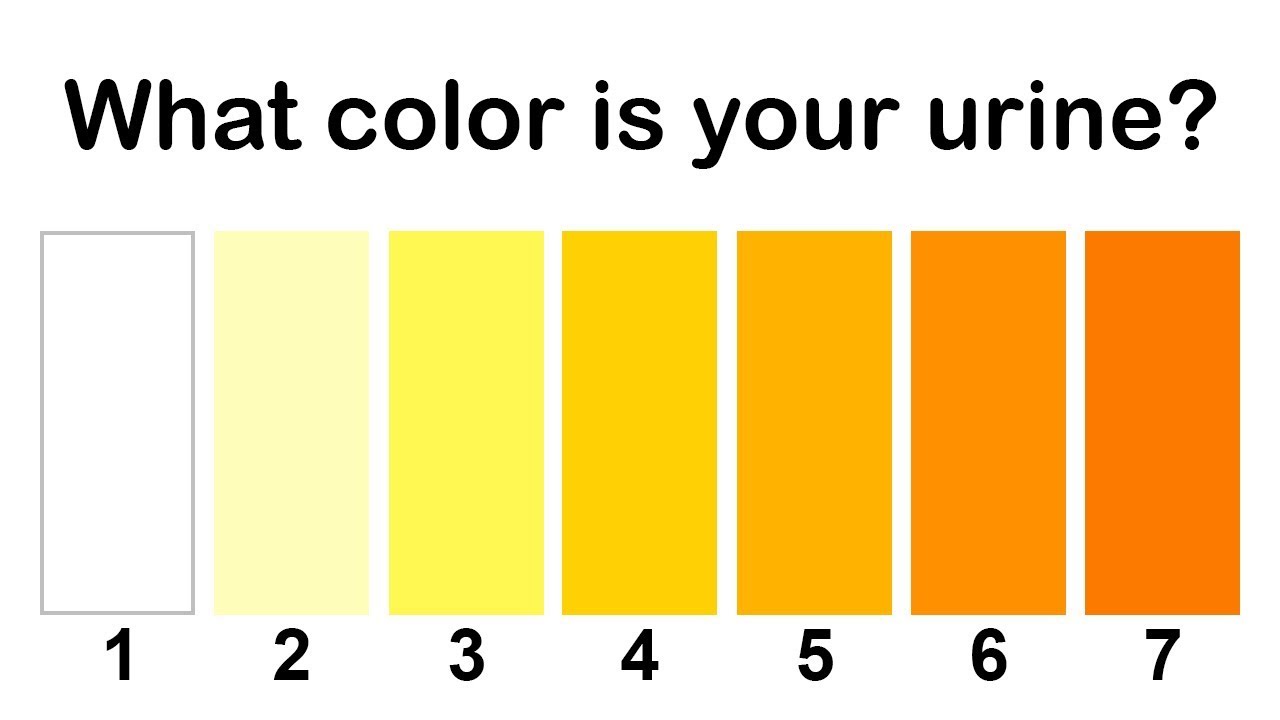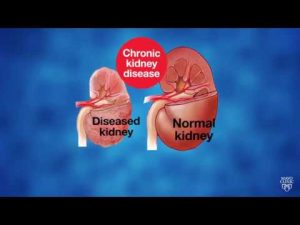The color of human urine has been very useful in diagnosing diseases for centuries, since changes in our urine’s color, density, or odor, may indicate that something isn’t right with our body. Every day, we expel tons of residue through our urine that comes from what we eat and drink. However, urine can also be used to alert us to a health problem, since it changes color and odor whenever something isn’t right. When you’re healthy, your urine is yellow, almost transparent. Its characteristic color comes from a pigment called urobilin. Our normal urine transports these urobilins which are diluted in water and give our urine this yellow, almost see-through color. That indicates an adequate level of hydration. If our urine’s color gets more intense, it might mean we’re dehydrated. However, if your urine is too clear, and you constantly feel the need to urinate, it might be water intoxication, or hyper hydration. That happens when a person drinks too much water. Your urine could also be other colors. Here is what they could indicate about your health: 1. Dark yellow urine 2. Orange urine 3. Red or pink urine 4. Blue urine 5. Green urine 6. Brown urine 7. Whitish urine There are also a few other changes in our urine that we should know about: – Foamy urine – Strong smelling urine —————————— Facebook: https://bit.ly/38BWbw3 Pinterest: https://bit.ly/2Irvwa6 Disclaimer: The materials and the information contained on Natural Cures channel are provided for general and educational purposes only and do not constitute any legal, medical or other professional advice on any subject matter. These statements have not been evaluated by the FDA and are not intended to diagnose, treat or cure any disease. Always seek the advice of your physician or other qualified health provider prior to starting any new diet or treatment and with any questions you may have regarding a medical condition. If you have or suspect that you have a medical problem, promptly contact your health care provider.

What The Color of Your Urine Says About Your Health
- Post author:
- Post published:June 11, 2021
- Post category:Uncategorized
- Post comments:0 Comments
You Might Also Like

Easy Warm Up Cardio Workout – Fitness Blender Warm Up Workout

Grow Taller Exercises: Top 10 Best Stretching Exercises to Increase Height & Get or Grow Taller

Military Psychiatry Video – 3

Music Therapy Relieves Patient Stress, Pain and Anxiety

What is the keto diet?

How to Test hCG Levels at Home

How to Start Running Without Getting Knee Pain : LIVESTRONG: Fitness & Exercise Tips

Lateral Raises-14

What Is a Normal Blood Sugar Level? | Dr.Berg
Basic Definition

What is SPORTS TOURISM? What does SPORTS TOURISM mean? SPORTS TOURISM meaning & explanation

BCAA Side Effects Dangers You Should Be Aware Of!

Are BCAAs A Waste Of Money???

What To Eat Before And After Your Workout To Maximize Fat Loss – With Thomas DeLauer

What is diabetes? | animated infographic video

Neurobion fort Tablet of Vitamin B Complex with B12

How to Do a One Handed Tricep Extension with Dumbbells

A Healthy Guide to Good Nutrition | What is Nutrition | Nutritional Information

When His Penis Won’t Stand Up: Causes of Erectile Dysfunction | Quint Fit

Emergency Medicine Video – 3

Dr. Berg Recommended Supplements for Intermittent Fasting

PECK DECK for CHEST! (Hindi / Punjabi)

Signs of High Blood Pressure During Pregnancy

Arm Workout Tips | Hammer Curls | Biceps Workout

Mayo Clinic Minute: Innovative research to fight kidney disease

Powerlifting to Win Novice Program week 2

How To: Seated Low Row (LF Cable)

Side plank-7

Creatine 30 Day Transformation Before and After | My Experience

FAQ 11: What To Eat Before and After a Workout | Health and Fitness
![Read more about the article [iPad] Surgeon Simulator – Kidney Transplant A++](https://videos.drmaheshkumar.com/wp-content/uploads/2021/05/iPad-Surgeon-Simulator-Kidney-Transplant-A-300x225.jpg)
[iPad] Surgeon Simulator – Kidney Transplant A++

Human Body, Body Building Muscle Building Anatomy Physiology Video – 36
Fitness Testing

The Back Extension Exercise Using a Ball

Top 5 Best Amino Acids Supplements 2016 First Half | MassiveJoes.com | Intra-Workout Acid

Gynecomastia Patients Talk About Their Surgery Experience

Fatcell Animation, 3d animation of a shrinking fatcell

Sailing Video – 3

Super Foods for Diabetics

Fitness First BMR and TDEE

Lat Pull Down-5

